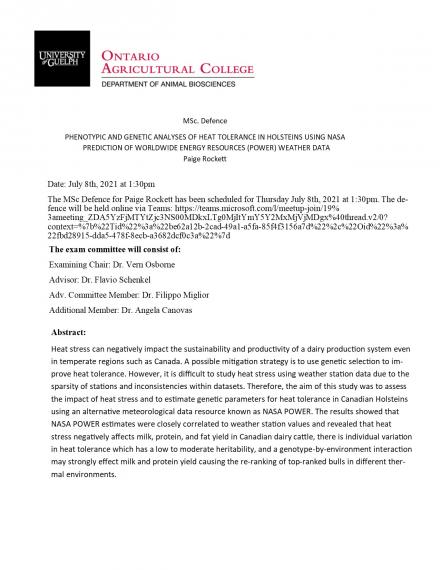Teams: https://teams.microsoft.com/l/meetup-join/19%3ameeting_ZDA5YzFjMTYtZjc3NS00MDkxLTg0MjItYmY5Y2MxMjVjMDgx%40thread.v2/0?context=%7b%22Tid%22%3a%22be62a12b-2cad-49a1-a5fa-85f4f3156a7d%22%2c%22Oid%22%3a%22fbd28915-dda5-478f-8ecb-a3682dcf0c3a%22%7d

Heat stress can negatively impact the sustainability and productivity of a dairy production system even in temperate regions such as Canada. A possible mitigation strategy is to use genetic selection to improve heat tolerance. However, it is difficult to study heat stress using weather station data due to the sparsity of stations and inconsistencies within datasets. Therefore, the aim of this study was to assess the impact of heat stress and to estimate genetic parameters for heat tolerance in Canadian Holsteins using an alternative meteorological data resource known as NASA POWER. The results showed that NASA POWER estimates were closely correlated to weather station values and revealed that heat stress negatively affects milk, protein, and fat yield in Canadian dairy cattle, there is individual variation in heat tolerance which has a low to moderate heritability, and a genotype-by-environment interaction may strongly effect milk and protein yield causing the re-ranking of top-ranked bulls in different thermal environments.

